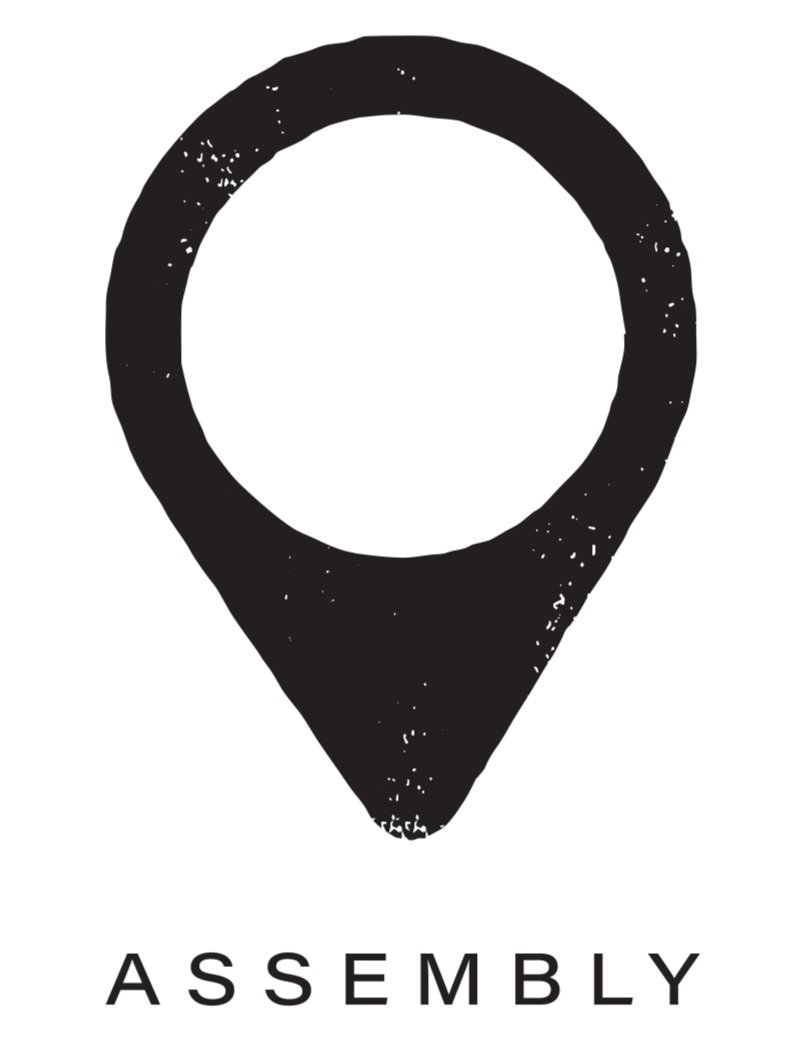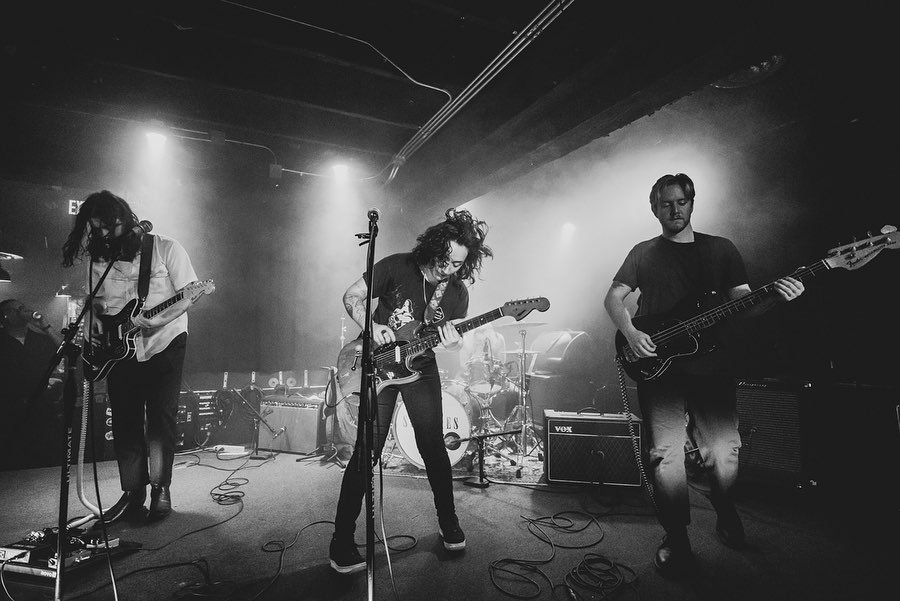Meet Your Musician | Sadie Ava
What to say about Sadie Ava? Talented, understated, wicked smart and one hell of a kind human are a few things that come to mind, but after brief conversation with this Seattle local and hearing her perform, you’ll understand that description hardly holds a flame to what light Sadie adds to a room. As part of our ongoing series here at Assembly, Sadie will be playing our December Listening Session with Leah Julius from their band Sundries. Until then we figured we’d give you a little look into Sadie’s world as she was kind enough to answer our hopefully “not so” cliche’ interview questions… if you make it out, you can ask her more during the Q&A as listening sessions is intended to be casual and conversational!
Coffee or Tea? And what is your go to drink?
Coffee! And tea! I’m a basic matcha oatmilk bitch. And my go-to drink is a gin and tonic. It’s the only thing I can (and regularly do) repeatedly drink too much of and still enjoy.
So your project is named, well it is your name. Any fun origins stories about your name?
Sundries (the band that Leah and I play in) met at a bagel shop in 2012. Travis and Ben, who also play in Sundries (and also worked at the bagel shop) I think came up with the name..I have zero recollection of where it came from. I think they lived near a crusty bodega on Capitol Hill that had a sign in front of it advertising sundries and thought it was a cool word. For whatever reason it stuck. We tend to not overthink things.
What initially drew you to music? And what keeps you in music?
I grew up in a household that cared about music. My mom is a classically trained pianist who knew all the grunge dudes in the 90’s and my dad has really diverse musical taste. I grew up with a lot of classic hip hop and soul, old school punk rock. My dad’s a big jazz head too. So it was always around, but I started songwriting as a teenager and it just became my way of communicating with the world and myself. It’s the thing that grounds me and provides a release. I can’t imagine living without the ability to play, think about, and listen to music.
Seattle has a rich musical history, from coined as the place where grunge was started to being the home of greats from Jimi Hendrix to the foo fighters, head and the heart, Macklemore…and the list goes on. While some may say the city helped shape the sound, can you tell us how has the city's music scene or culture influenced your sound and style?
Seattle is where I met my band and my best friends. When I arrived it was where a lot of young people (including myself) come to start something new. You could still kinda live cheaply on a service industry paycheck in Capitol Hill back then. I hope the city can continue to foster new creatives who want to make an impact. It’s vital!
Can you share a memorable moment from your musical career that has had a lasting impact on you as an artist?
My favorite moments are right before shows when my bandmates and I are looking for burritos and walking around a new neighborhood. For me, more than anything, my musical career has been about sharing community. Sundries shows were where I’d see my friends. That’s the most memorable.
Private concerts often offer a more intimate setting. How does performing in such environments compare to larger, public venues, and what do you enjoy most about connecting with a smaller audience?
I think for every songwriter, playing to rooms where the audience wants to hear the words, wants to understand the songs is incredibly meaningful. Bigger shows are about the energy, the performance, the stage design and affect. But I love smaller rooms because you can connect very directly with people and experiment.
Many musicians find inspiration in unexpected places. Is there a particular experience, place, or person that has significantly influenced your creative process?
I am very influenced by what’s happening around me. During COVID I lived on a ranch in eastern washington and had to evacuate from a wildfire at the same as the racial justice protests in the city. That marked a big inflection point for my songwriting. I started writing more about social issues, climate change, the experience of being young and losing your youth during upheaval. My creative process has never looked the same since.
Your favorite song you’ve written…and why?
I don’t pick favorites!
Collaborations can be powerful in the music industry. Have you had any memorable collaborations that have shaped your music in unexpected ways?
Right now I’m working with a dude named Jeff Kerestes on some solo stuff. He’s a bass player who played on Broadway and is just the most insanely talented musician ever. Working with players like that constantly pushes you, and I’m learning to collaborate on lyrics in a new way. He’s a much, much better musician than I am. I can’t even read.
Seattle is known for its diverse and passionate music community. How have you found support and camaraderie within the local scene, and what advice would you give to aspiring musicians trying to establish themselves in a vibrant but competitive environment?
Seattle has been a wonderful, nurturing place to play music and I love so many people in the scene. My advice for aspiring musicians is simple: don’t chase the popular thing, especially if it’s boring.
Every artist has a unique pre-show or post-show ritual. Can you share yours, and how does it contribute to your performance mindset or help you wind down?
I don’t really have a ritual. Tequila or whiskey and some kind of noodle or tortilla is usually as far as it goes.
Technology has greatly impacted the way music is created and shared. How have you embraced or navigated the digital landscape, and what role do platforms like social media play in your career?
I haven’t. It’s really hard. Social media can be very bad for your mental health (I’ve struggled a lot with disengaging), the fact that as an artist, you have to interact with it to be successful is a major challenge. It’s the biggest reason I haven’t put effort into growing my career, and my career has suffered for it. I’m also old. Tik Tok baffles me.
Seattle's landscape and culture are often reflected in its art. How does the city's atmosphere and surroundings influence the themes and emotions conveyed in your music?
Well I don’t think anyone writes can write happy songs in the PNW climate and that’s certainly true of my own writing. Serial killers and songs about death go hand in hand.
All time best show you’ve gone to? What made it so special?
Honestly, Grimes at Sasquatch a few years ago blew my tiny brain. It was totally unexpected. She is incredibly skilled and was able to command the main stage in a really powerful way for such a tiny person.
Do you have a favorite “fan moment”? Moment with a fan?
Any time anyone wants to say hi about music it’s a wonderful moment.
Talk about a/some projects you have in the works that we could share with our readers?
I’ve got new music coming out for the first time in almost a decade. 4 songs, all on an EP I wrote and recorded with Barrett Jones at Laundry Room Studios. They are my little babies and I hope people enjoy them live and direct on all streaming services starting Dec 2
Official Bio: Music for a long walk alone.
Based in Portland, Oregon, Sadie Ava is a singer, songwriter, and multi-instrumentalist. Her songwriting is drawn from her life, or the world around her — which means her songs are mostly about heartbreak, climate change, or both. She’s influenced by punk rock and R&B but also draws from Americana and jazz.
In 2014 she self-released The Way We Are, a record about falling in love with her now wife. Sadie is the front-woman of Sundries, a Northwest rock band that has shared the stage with acts like Thunderpussy, Young The Giant, and Deerhunter.
She's sad, queer, and occasionally, a good hang.
Learn more about Sadie:


